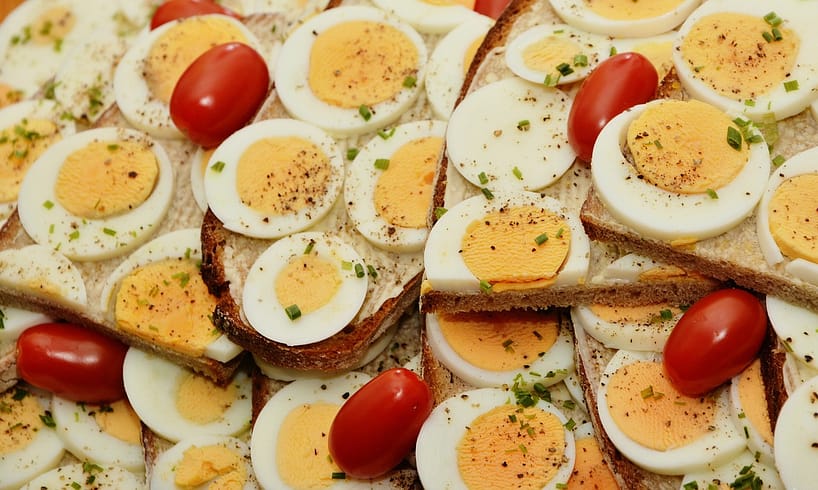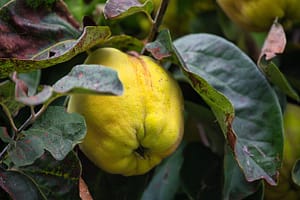
A new vegan may be curious about the best places to get their protein. This is understandable, given that adopting a plant-based diet and lifestyle often necessitates a radical adjustment to one’s way of eating. Many individuals have trouble figuring out how to get enough protein in their diets when they cut out meat, dairy, and eggs. What foods can vegans eat to get protein?
In such a case, is meat the only source of protein?
No, but more research and preparation will be needed. This is because many plant-based diets include protein, but the quality may not be on par with that of animal-based foods. Meat, milk, and eggs are good sources of protein because they contain all nine necessary amino acids. Unfortunately, many vegan protein sources are deficient in one or more of these components.
You may increase your odds of receiving all the amino acids you need by purchasing the best vegan plant protein powder. One alternative is to supplement your diet with more complete or nearly complete plant-based protein sources. To help you satisfy your needs while sticking to a plant-based diet, we’ve compiled a list of eight of the greatest vegan sources of protein.
-
Soy Products
One of the most popular components of vegan diets is soy, in the form of tofu and tempeh. They complement many other foods, are simple to cook, and provide a lot of protein. Soybean products are also high in several essential nutrients.
Calcium, manganese, and selenium are all abundant in tofu and tempeh, and so are the extremely bioactive chemicals known as isoflavones. In addition, research suggests that a diet rich in soy and soy products is associated with a dramatically decreased risk of death from many different types of cancer and cardiovascular disease. Isoflavones have been linked to several of these benefits.
These polyphenols may also be useful for controlling blood sugar, lowering cholesterol, warding off inflammation, and lowering blood pressure.
-
Seitan Dishes
Seitan, a vegetarian meat replacement manufactured from wheat gluten, goes by a variety of names, including “wheat meat” and “wheat gluten”. It has the appearance and feel of cooked meat, unlike other soy-based products. Seitan is well-known not just for its unique chicken-like taste but also for its high protein content.
But even though seitan is one of the best vegan sources of protein, it’s important to note that it’s not very high in the EAA lysine unless the wheat used to make it was fortified with this element.
Seitan has a low amount of fats and carbohydrates, but it has a good amount of selenium, iron, calcium, and phosphorus. Seitan is a nice complement to any plant-based diet, but people with celiac disease or gluten sensitivity can’t eat it because it has a lot of gluten in it. What foods can vegans eat to get protein?
-
Buckwheat
Like quinoa, buckwheat is a gluten-free pseudo-cereal that’s rich in protein. Like quinoa, it’s rich in the amino acid lysine, making it a good source of protein. It contains a broad variety of physiologically active substances, including flavonoids and beta-glucans, and is a good source of phosphorus, manganese, copper, magnesium, and iron.
Consuming buckwheat grain on a daily basis has been shown to lower blood pressure, decrease inflammation throughout the body, and improve cholesterol levels, as well as decrease the likelihood of acquiring type 2 diabetes, cardiovascular disease, and several forms of cancer. Soba noodles are the most prevalent form in which buckwheat is consumed. These grains may be prepared in the same way as oats or made into flour and used in cooking and baking, especially for morning foods.
-
Chia Seeds
When it comes to plant protein, chia seeds are hard to beat. They have a high concentration of every essential amino acid. Polyunsaturated fatty acids, fiber, B vitamins, calcium, phosphorus, and potassium are all abundant in chia seeds.
Chia seeds have been shown to provide significant health benefits due to their high nutrient content. Consuming chia seeds on a regular basis has been shown to lower the risk of getting hypertension, type 2 diabetes, and cardiovascular issues, as well as neurodegenerative and liver ailments.
Puddings, sweets, and jams without pectin may all benefit from using chia seeds instead. In addition to being a tasty addition to porridge, salads, and smoothies, chia seeds are often used as an egg alternative in vegan cookery.
-
Quinoa
While a cup of cooked quinoa has less than 10 grams of protein (less than some other plant-based proteins), its full amino acid profile has made it a popular meal staple among vegans and vegetarians. It also has a high concentration of the amino acid lysine.
However, that’s not the only way this plant-based protein is good for you. There are several physiologically active chemicals in quinoa, including those with potent antibacterial, antioxidant, and anti-inflammatory effects. Consuming quinoa regularly has been shown to reduce the risk of developing certain chronic illnesses. It may help improve immunity and alleviate the discomforts of menopause. What foods can vegans eat to get protein?
-
Hemp Seeds
Seeds from the hemp plant, or Cannabis sativa, are tiny and delicious. If that makes you uncomfortable, be assured that hemp seeds generally contain tiny amounts of THC, the euphoric element that makes this plant popular among recreational users.
Increasing your consumption of hemp seeds may help you in many ways. These little seeds are not only delicious but also highly healthy, and they complement many other foods. Per 100 grams, the protein content of hemp seeds is an astounding 32 grams.
The antioxidants and polyunsaturated fatty acids found in them, especially Omega-6 and Omega-3, as well as the minerals iron, phosphorus, potassium, magnesium, and zinc, make them a healthy addition to anyone’s diet. Hemp seeds contain cannabinoids, which have powerful antioxidant and anti-inflammatory qualities and may decrease and stop the growth and spread of malignant cells.
-
Spirulina Algae
One of the greatest sources of complete protein of microbial origin, spirulina, is nearly as high in protein as meat and soybeans. Additionally, it provides a wealth of bioactive substances, including phenolics, phycocyanins, and polysaccharides, as well as vitamins B, C, magnesium, calcium, copper, and iron.
Spirulina is a type of algae that has been studied for its potential role in warding off cardiovascular disease, high blood pressure, neurodegenerative disorders, exercise-induced muscle damage, and infectious diseases due to its high levels of antioxidants, immunomodulatory factors, and anti-inflammatory compounds.
Evidence is mounting that these algae may improve cognitive performance by counteracting mental weariness, protecting cerebral blood vessels, and enhancing memory. A powder with a distinctive green color is the most common form in which spirulina is offered for sale. Smoothies, granola bars, soups, and salads all benefit from having this added to them. Tablet versions are also available.
-
Beans & Lentils
Beans, peas, and lentils are all examples of pulses, although they aren’t deemed complete protein sources because of their low levels of the amino acids methionine and cysteine. However, pulses merit attention since they are otherwise excellent protein sources and provide the majority of this macronutrient in most plant-based diets.
Pulses are an excellent source of several beneficial nutrients, including phytochemicals with powerful antioxidant and antimutagenic effects, as well as dietary fiber, iron, zinc, folate, calcium, and magnesium.
They have a low glycemic index, so they might aid with weight loss and help maintain blood sugar levels stable. Including beans and lentils in your diet is associated with a lower risk of cardiovascular disease, lower blood pressure, and improved blood lipid and glucose metabolism. What foods can vegans eat to get protein?
-
Green Veggies
Green vegetables provide more than just vitamins and minerals; they are also an excellent source of protein, which is a nutrient that is sometimes ignored. Spinach, Brussels sprouts, and green peas are all examples of foods that provide adequate amounts of protein and may help you achieve a healthy balance on your plate. Not to add that greens are packed with fiber, are low in calories, and have a high concentration of antioxidants.
-
Nutritional Yeast
In the vegan world, nutritional yeast is affectionately referred to as “nooch,” and even though it has a scientific-sounding name, you shouldn’t let that fool you. It has the look of a yellow yeast and a flavor that is very cheesy and strong in umami. It has 4 grams of protein for every 2 tablespoons, and in addition to that, it is an excellent source of vitamin B12 for vegans. The vast majority of dietary sources of vitamin B12 come from animal products; hence, many vegans need to take supplements. If you follow a vegan diet, you should discuss it with your primary care provider to be sure you are receiving adequate nutrients. You may enjoy nutritional yeast in sauces or dressings, as a topping for your next meal of pasta, or as an ingredient in a bowl of popcorn.
The Bottomline
I hope that my information on vegan supplement powder sources was of some use to you. As you’ll see, there are a number of different ways that you may include a range of vegan meals that are plant-based into your meals every day. Please leave a comment below if there is a protein source that you believe should be added to the list or if you have a question about this topic.
Author Bio
I am Meera Sharma, a post-graduate in Health and Nutrition, and an inquisitive person who loves writing. I’m working for Getveganway, and my forte is digital marketing and everything that has to do with phones and screens. I believe that one person can make a difference, and that’s why I’ve taken up writing, which is the best means to communicate these days. I have a decade of experience in writing and marketing, and I still find myself learning new things about it, which I want to share with my readers: what foods can vegans eat to get protein?


